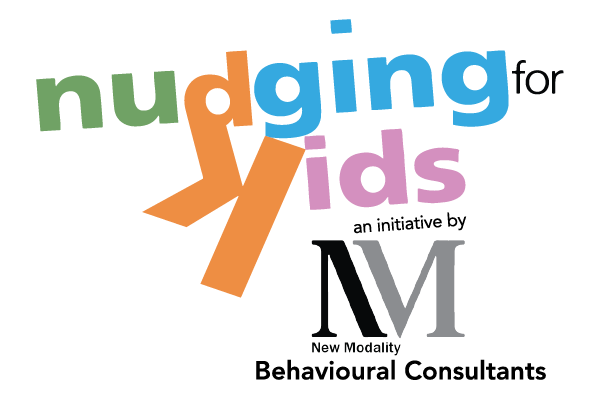
17 Feb Parent-Teacher Partnership & Nudging
As parents and educators we know that positive, supportive and open relationships between home and school, parent and teacher are highly beneficial as they result in improved over all development for children. And when parents and teachers are generally encouraged to cultivate positive partnerships in general, why shouldn’t the same apply to nudge theory?
The end goal of nudging for children, both in case of parents and educators, is to bring the future citizens of the world to a better place, academically, socially and morally. A great example of parent-educator partnership would be a project run by researchers at Stanford University that sent parents of three and four year-old children several text messages a week, prompting the parents to practice concrete pre-literacy strategies with their children. The messages provided basic guidance by educators that parents could practice during their everyday interactions with children right at home. This nudge intervention led to significant increase in parent-child engagement and showed improvement in the cognitive performance of the children as well. Another nudge intervention involving both parents and educators in the United Kingdom showed a great response as well. Sending parents text messages about their child’s upcoming tests and homework led to an improvement in math performance of the said children.
At NFK we believe parents and teachers partnering together to work on ingenious nudge interventions is a great way to bring about positive changes in children more effectively and should be a more commonplace practice in this space. Here’s why parents and educators should be collaborating as far as nudge applications and interventions for children are concerned:
-Nobody knows a child better than the parent and nobody understands the psychology of children better than an educator who has both the degree and the practical experience of having worked with little minds all their lives. The combined strength of these two perspectives could do wonders for the progress of children.
– Nudges are low cost interventions that are easy to build and utilize. Again this makes designing nudges an economical learning element for children both at home and at school even with budget constraints.
Here’s some simple ways you can ensure that as parents and educators, you are collaborating to nudge your child in the same direction:
- Talk & Share Nudge ideas – this would best work both ways where parents and educators could share their ideas, and failure or success stories with nudge interventions. The mission here would be to take a single nudge idea and explore its various applications in different environments and scenarios with children.
- Be Open to Learning – A success story for one parent can translate into a success story for an entire community of students. Nudge interventions applied at school could just as easily be replicated, maybe even bettered for a stronger impact at home. Be open to communication and learning always, both as a parent and as an educator.
Finishing thoughts –
For Educators – Funding for public bodies, development organizations, and schools is almost always stretched thin. In such cases the high-impact and low-cost of behavioral interventions and sharing, learning and growing alongside a community of parents can be a powerful tool for both educational policymakers and teachers.
For parents – Working in sync with schools and adapting nudge policies and ideas from educational think tanks or policy makers can be extremely beneficial. It’s a great idea that’s coming to you from ignited, learned minds that have a full understanding of the holistic development of children.
This new year let’s take the NFK pledge to make nudging a strong movement both in school and at home so that children may fully reap its rewards.
#NFKparentteacherpartnership #letsgettogether #parenttoteacher #teachertoparent #worktogether


